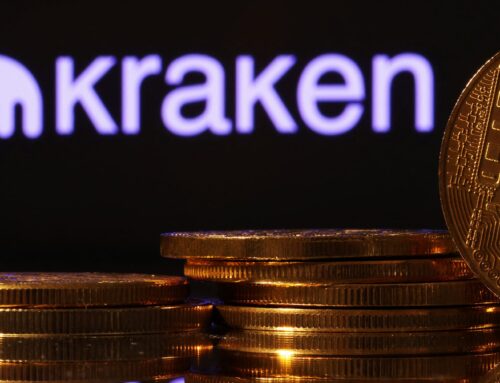Bitcoin Breakout Narrative Explodes As Japan’s Bond Market Collapses
May 21, 2025
Japan’s government-bond complex, once the benchmark for low-yield stability, is cracking under the weight of its own arithmetic—and the fissures are sending tremors straight into the global debate about Bitcoin as a reserve asset. Thirty-year Japanese Government Bond (JGB) yields catapulted to 3.15% this week, eclipsing every prior high since the tenor’s 1999 debut.
That print triggered an instant warning from the markets newsletter The Kobeissi Letter: “Japan’s bond market is imploding… Japan’s 30Y Government Bond Yield has officially surged to its highest level in history, at 3.15%. For decades, Japan was known for low long-term interest rates. Now they are dealing with high inflation, shifting policy outlook, and a whopping 260% Debt-to-GDP ratio.”
Liquidity, always fragile at the long end of Tokyo’s curve, vanished just hours later. From New York, Zerohedge relayed traders’ disbelief: “This is unbelievable: for the second day in a row, Japan’s bond market is bidless, with both 30Y and 40Y JGB yields at record highs. Meanwhile, as the world’s 2nd biggest bond market is imploding, the BOJ is pretending nothing is happening.”
Inside the Diet, Prime Minister Shigeru Ishiba delivered a stark political gloss: Japan’s fiscal plight, he conceded, is now “worse than Greece,” a phrase that would have been unthinkable during the deflationary 2010s. That assessment lands just as gross public debt pushes toward 260% of GDP and as Japanese investors—who still hold roughly $1.1 trillion of US Treasuries—contemplate selling overseas paper to shore up domestic books.
Why This Is Ultra-Bullish For Bitcoin
For Bitcoin analysts, the chain of causality is brutally clear. Pseudonymous macro voice Stack Hodler wrote to his followers: “Everyone expects Yield Curve Control. But Japan already tried YCC and look at what it got them—a spectacular bond-market implosion happening right in front of us. Now every Japanese bank, pension fund, and insurance company that trusted the Bank of Japan is holding a massive bag of flaming excrement… If this is the end result of YCC, why would any rational investor hold sovereign debt from severely indebted nations? Central-bank credibility is shattering in real time. Scarce neutral reserve assets—Bitcoin and gold—need to be repriced dramatically higher.”
Dan Tapiero, founder of the $3.9 billion digital-asset vehicle 10T Holdings, reached much the same conclusion in fewer words: “Quietly…and off the radar…the Japanese long-bond yields are going parabolic. Time to watch Japan…Unsustainable deficits have been the norm for 30 yrs…Now a problem. Very bullish gold and Bitcoin.”
The systemic-risk argument tightens further when one zooms out to the global balance sheet. Author Bruce Florian frames the macro math as musical chairs with a finite number of safe havens: “There are three times more debts than GDP, and interest rates are twice as high as economic growth… It’s like a game of musical chairs.
Everyone knows there are fewer chairs than players.” Florian highlights the feedback loop linking Tokyo and Washington: “The biggest buyer of US debt has been Japan… But this customer is now in financial trouble… There’s a high chance Japan will sell some of these bonds to stabilize its own situation… In a year when the USA needs to refinance $8 trillion, what happens if no buyers show up? The Fed will monetize the debt.” The punch line, he insists, is Bitcoin: “Bitcoin is shifting from a ‘nice-to-have’ asset to a must-have asset… In a world of unlimited debt, scarcity is the most radical form of reason.”
Wall Street heavyweights are edging toward the same territory. JPMorgan’s Jamie Dimon told investors on Monday, “I’m not a buyer of bonds. The risks are too high.” Ray Dalio wrote that the greater default risk now lies in “currency debasement,” not in missed coupons. And Larry Fink, whose firm’s spot-Bitcoin ETF has absorbed more than $31 billion since January, said on Fox Business that Bitcoin is “an international asset” fit for times when “countries devalue their currencies.”
BTC Price Responds
Bitcoin’s price action is responding in real time. BTC rose to $107,322 at press time, less than 4% shy of its halving-cycle high. None of this proves that Bitcoin is destined to replace sovereign debt, but the directional shift in marginal flows is no longer hypothetical. When the second-largest bond market on earth shows two consecutive bidless sessions and its prime minister compares the country to Greece, capital chases the assets whose supply cannot be printed. Bitcoin, engineered for hard-cap scarcity, slots neatly into that vacuum.
Whether this is the moment sovereign debt loses the mantle of “risk-free” remains to be seen. What is indisputable is that the implosion of Japan’s ultra-long JGBs has handed Bitcoin its clearest macro tail-wind since 2020’s pandemic-era liquidity flood—except this time the narrative is not emergency stimulus but the dawning realization that even advanced nations are running out of balance-sheet room. For a growing cohort of investors, the word bond is beginning to rhyme less with safety and more with risk, while Bitcoin is rhyming—loudly—with insurance.

Search
RECENT PRESS RELEASES
Related Post


